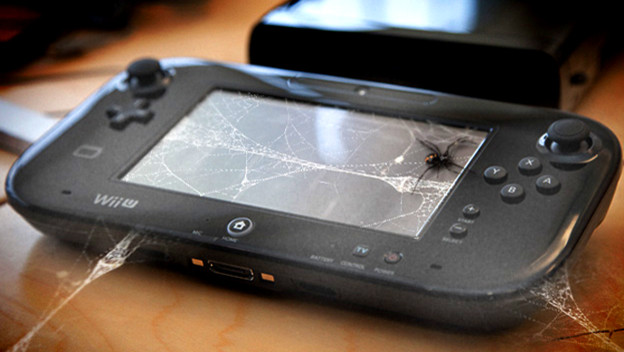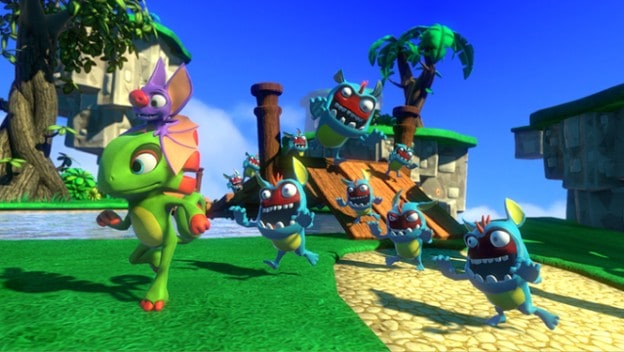One of the latest controversies surrounding the Kickstarter scene is games that promised Wii U versions during their campaign deciding to offer Switch versions instead. The highest-profile of these titles is Yooka-Laylee , the colorful collect-a-thon platformer by ex-Rare devs. On December 13, the team at Playtonic announced that after encountering “unforeseen technical issues,” they would not be able to release the game on the Wii U as they’d initially planned. It will be coming to the Switch instead, and Kickstarter backers have the option to switch to any other platform or to contact Playtonic directly if they wish to discuss a refund.
This is disappointing news for Wii U owners, to be sure. I know a lot of fans of the console have been hoping it could at least be a haven for indie games, like the Vita has become since Sony decided to stop caring about its existence. Instead, developers are deciding it’s a better idea to go with the flow and switch to the, well, Switch. With their usual hyperbole, certain elements of the game community are declaring this a grand betrayal, a terrible broken promise that means gamers should never support these developers or back a Kickstarter ever again. Others are claiming that these companies are liars who never intended to port to the Wii U and just wanted to cheat Wii U owners of their money. I find all these accusations both unfair and unfounded. If these gamers are going to be mad at anybody, it should be Nintendo.
Nintendo started backing away from the Wii U in early 2015, when former president Satoru Iwata (may he rest in peace) announced that the company was working on a successor console named NX. Now, it wasn’t Iwata’s full intention to abandon the Wii U – he largely wanted to inform shareholders that no, Nintendo wasn’t going to stop producing hardware and move completely to mobile devices. Unfortunately, when we name things, even temporarily, we give them power. The game industry’s attention shifted almost entirely to the mystery console rather than the Wii U, and Nintendo’s soon did as well. Despite 2015 being an excellent year for Wii U software, 2016 has been a near-complete wasteland for the ill-fated console.
When Nintendo itself has barely made any games for the Wii U since 2015’s Super Mario Maker , can you blame smaller developers for backing away? Nintendo focusing all its energies on the Switch is about more than just Nintendo’s own software development. It likely also means reduced support for third parties looking to port to the Wii U. I wouldn’t be surprised if small developers with Kickstarted games fall to the bottom of the heap. I also wouldn’t be surprised if Nintendo is encouraging indie devs to consider porting to the Switch instead at this point.

In the case of Yooka-Laylee , there really are technical reasons why the game might not work out on the Wii U, too. Yooka-Laylee is a Unity game, and as Nintendo-savvy journalist Emily Rogers recently pointed out on Twitter, Unity runs notoriously poorly on the Wii U. We don’t know why it took Playtonic so long to give up on the Wii U – maybe they really gave it the ol’ college try, but just couldn’t get the frame rate to cooperate. I see no reason not to believe the Playtonic team when they cite technical difficulties. Not everything is a conspiracy, and the Yooka-Laylee project has otherwise been quite competently and honestly run.
The Wii U hasn’t been Nintendo’s finest hardware moment. Although it does have a small, passionate user base, passion isn’t enough when it comes to an indie company attempting to overcome various technical hurdles in order to port to a console that’s about to be replaced. Kickstarter patrons should certainly expect a free platform switch or a refund when a company abandons a planned Wii U version, but there’s no reason to throw a temper tantrum at the indie developers. It’s Nintendo that decided to abandon the Wii U so quickly, and in the end, business is business.
